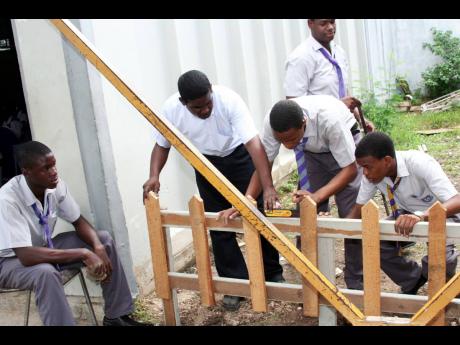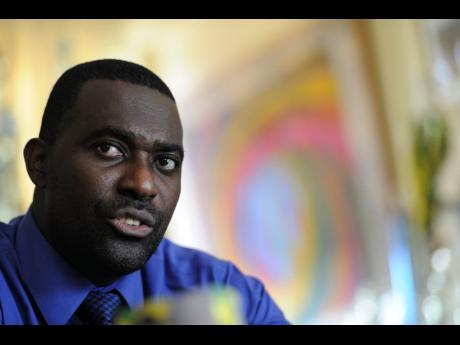Online lessons could affect delivery of practical subjects - Teachers fine-tuning grading scheme for at-home tests
With the 2020-2021 academic year set to officially get under way soon, questions are being raised about the feasibility of teaching all classes remotely and the rubric to maintain consistent criteria for grading students at home.
During a Gleaner Editors’ Forum last week, Lynton Weir, president of the Association of Principals and Vice-Principals, admitted that he was concerned about the delivery of practical courses, especially, those that would normally be delivered in controlled environments under the keen supervision of teachers.
“I’m very concerned about those practical courses. For example, the woodwork, the metalwork, electrical installation, food and nutrition,” he said during the virtual forum on Thursday.
While he does not believe face-to-face classes should be resumed on October 5, Weir, who is the principal of Old Harbour High in St Catherine, said that an exception may have to be made for students preparing to sit practical subjects in external examinations at the end of the school year because at some point, they need to lay hands on the tools.
“We must be mindful that we would not be able to take all the others, just the exam group to ensure that they are able to finish [the syllabus] and obtain the learning skills required for those practical subjects,” he said, adding that students could be asked to attend school for three days.
When asked if he would support discontinuing those subjects for lower school students until face-to-face instruction could be resumed, Weir said that such a determination would have to be made by principals and senior teachers following meetings with the Education COVID-19 Management Task Force.
He shared that he was aware of one school having students conducting food and nutrition practicals at home and submitting photos for assessment.
At the end of the last academic year, some components of the Primary Exit Profile tests for students leaving primary schools and some Caribbean Secondary Education Certificate exams for high-school students were not administered because of COVID-19 disruptions to the delivery of lessons. School administrators were also asked to scrap end-of-term tests.
Mitsie Harris-Dillon, interim president of the National Parent-Teacher Association of Jamaica (NPTAJ), said it remained to be seen what would obtain in the upcoming year.
“There were concerns during the last term as to the grading system, but we were advised by the ministry that steps had been taken to ensure that this information is captured by each school ... ,” she said during the forum. “For children who are not being reached and are not able to complete their assignments or their work in keeping with what is set out in the curriculum, there is going to be a challenge.”
She said that consideration would have to be given to those students who have experienced learning gaps.
Ree-Anna Robinson, the public relations officer of the National Secondary Students’ Council, pointed out that assessing students online went further than the issue of Internet connectivity.
Issues, she said, include “bandwidth speed, you have computer efficiency, you have the fact that the test is normally done in sequence, so if you skip a question, you have to go through all the questions that you previously completed to reach that question”.
“They (students) are very concerned about how testing will be done,” said Robinson.
In response, NPTAJ Assistant Public Relations Officer Latoya Benjamin, who is also an educator, said that teachers were exploring alternative means of assessing students.
“I have found different methods of testing my students which work for them, and I’m getting positive feedback. That is where we are headed. Teachers are being trained, and we are collaborating to see the best way we can help students,” Benjamin said.


